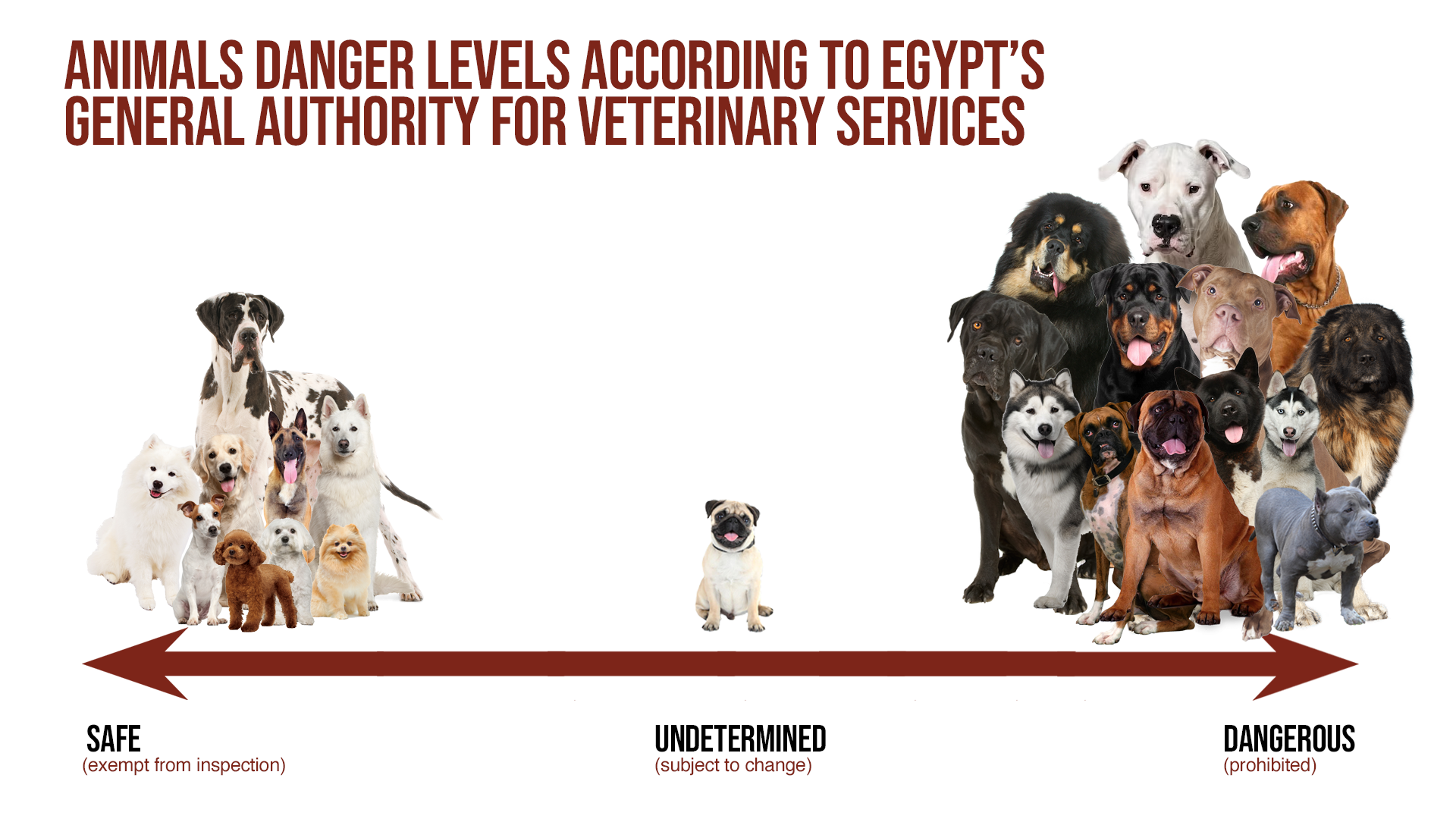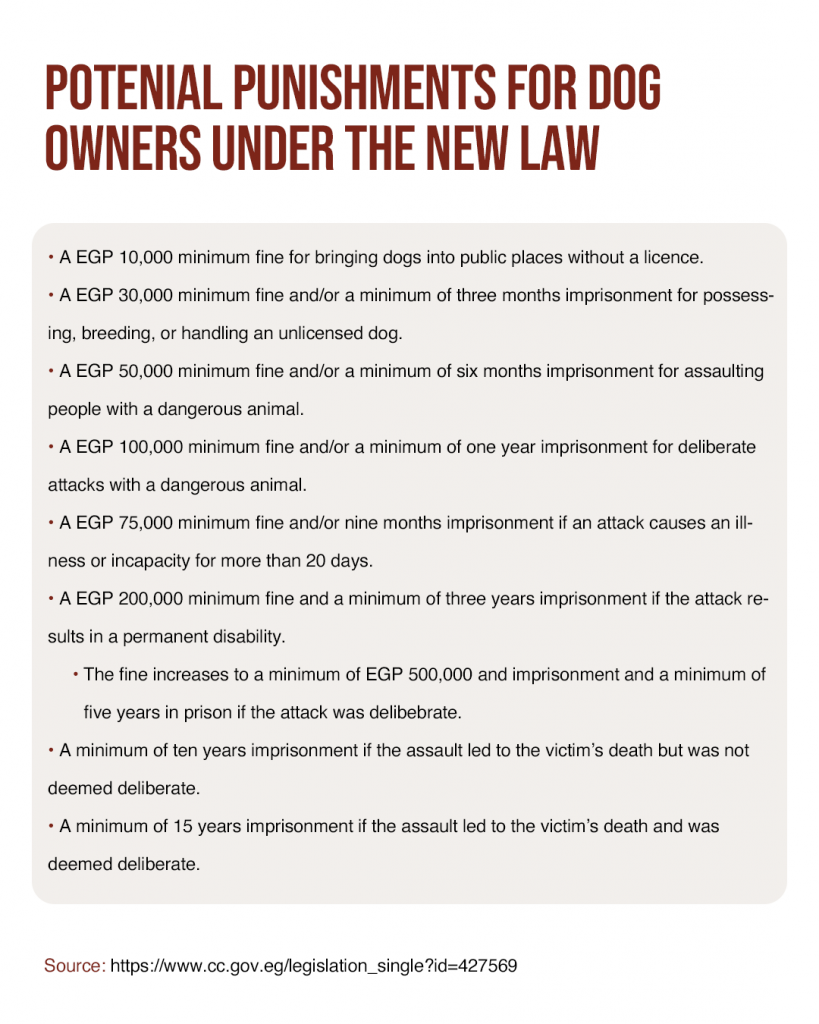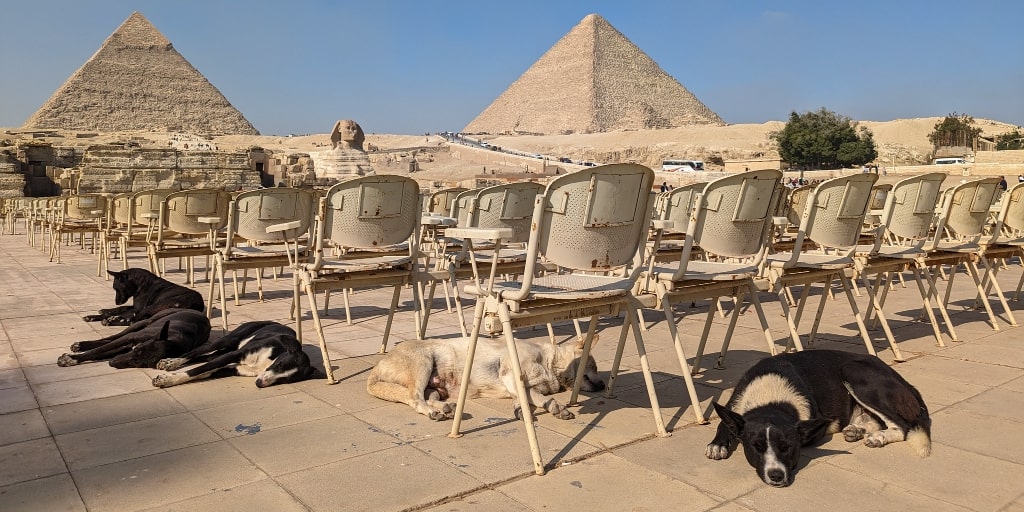Egypt’s ‘dangerous animals’ law came into effect on 14 June, enforcing new regulations for owning dogs and exotic animals. First drafted on 29 May, the law continues to spark outrage among Egyptian dog owners over its particular ban on certain breeds.
Known formally as the Regulation of Ownership of Dangerous Animals and Dogs Law, the new law classifies dangerous animals as “that which causes harm or damage to humans or animals,” as written in Chapter 1, Article 1 of the legislation.
An animal deemed dangerous by the General Authority of Veterinary Services (GAVS), the authoritative body on the new law, must surrender its pet for inspection within one month of the law’s enactment. Upon inspection, the authority determines whether the breed is suitable for registration or too dangerous.
Dog owners that do not abide by the new law could face a fine of EGP 10,000 (USD 323) for an unlicensed dog, or jail time in the case of their pets causing harm to another person or animal.
A person with an unregistered dog that attacks another person could face a minimum of six months in prison. The sentence is extended to a minimum of three years if the attack caused permanent damage, and a minimum of ten years in the case of the attack leading to the person’s death.
Under certain conditions, the general authority could permit pet owners to register and maintain breeds from the prohibited list. Chapter 2, Article 3 of the law highlights that dangerous breeds are prohibited from entering public spaces.

Dog breeds deemed dangerous by the general authority are Pitbulls, Rottweilers, German Shepherds, Huskies, Caucasian Shepherds, Bullmastiffs, Dobermans, Alaskan Malamutes, Great Danes, Akitas, American Bullies, Alpine Mastiffs, Dogo Argentinos, Cane Corsos, and Tosa Inus.
Only 10 breeds are exempt from inspection during registration: the Cocker Spaniel, Labradors, Poodles, Malinois, Pomeranians, Jack Russell terriers, Great Danes, White German Shepherds, Maltese, and Samoyeds.
The law does not address baladi (street) dogs but does state that the list is subject to addressing more breeds.
Other prohibited animals include cheetahs, tigers, lions, jaguars, wildcats, gorillas, chimpanzees, monkeys, crocodiles, turtles, venomous snakes, wolves, foxes, bears, pandas, hippopotamuses, wild buffalos, and wild donkeys.
While the new legislation states that the selection was based on a report presented by the GAVS’s Scientific Committee, it does not explain the rationale behind the selection.
Dogs not considered dangerous are still required to be inspected, registered, and licensed – a process that could incur a cost of EGP 1,000 (USD 32) up to 50,000 EGP (USD 1,618) depending on the breed.

The decision comes four months after a bank manager was mauled by a neighbour’s Pitbull on 27 February. The man later fell into a coma and passed away.
The incident sparked a nationwide debate over the regulations of dogs, eventually leading to the new law. Animal activists expressed outrage over the law’s restrictions, deeming it detrimental to animal rights.
“It’s like passing a law prohibiting people from driving cars because of a car accident,” Egyptian Society for Mercy to Animals (ESMA) Chair Mona Khalil told Ahram Online in an interview.
Mira Gamal, a dog shelter owner in Cairo, believes the potentially exorbitant costs associated with registering a pet will increase the likelihood of individuals abandoning their dogs, leaving them to roam the streets.
Egypt’s House of Representatives intends to address the new law during a parliamentary session on 15 June in an attempt to clear the air of confusion and controversy.







Comments (8)
[…] владельцев собак определенных пород. Об этом сообщает Egyptian […]
[…] Read More […]